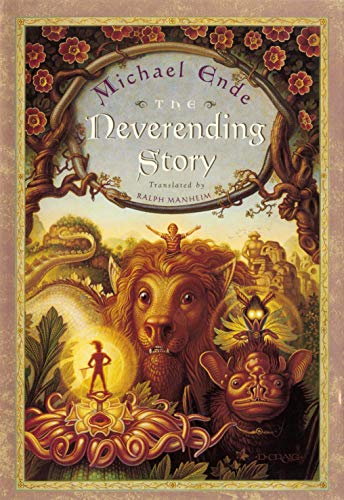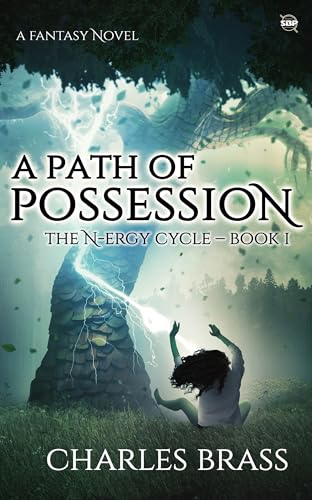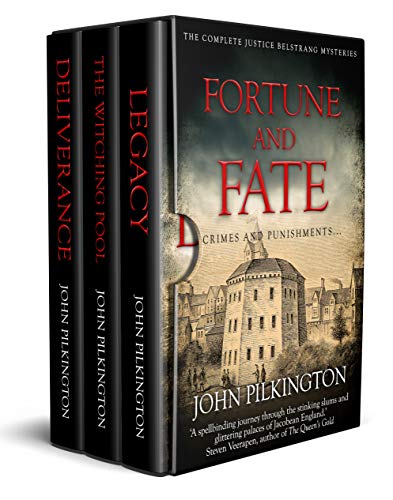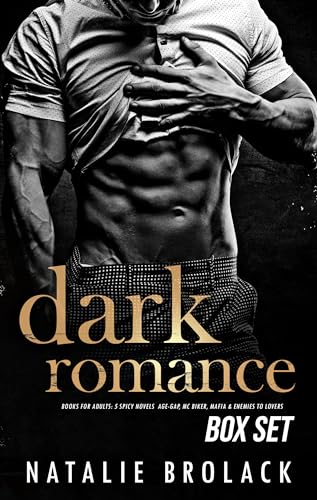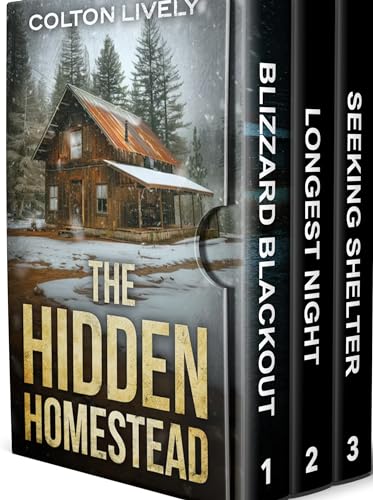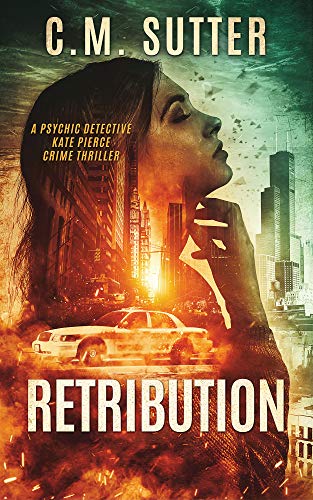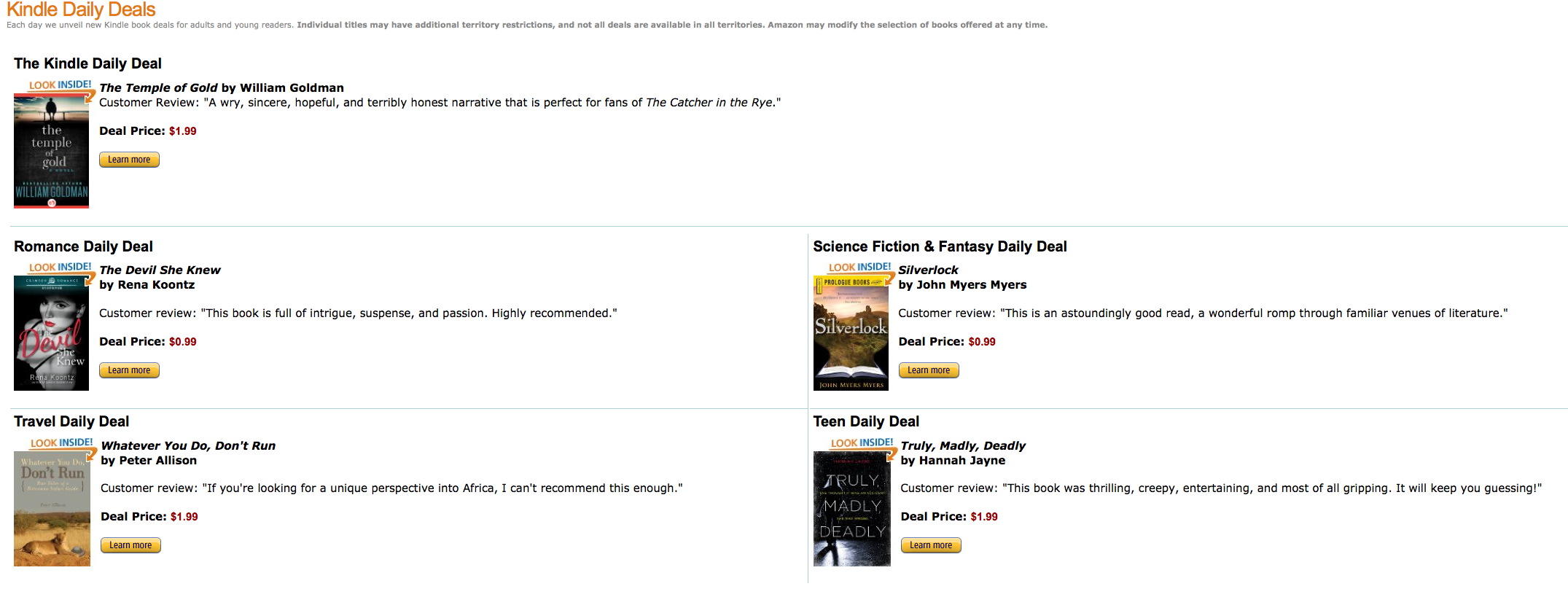an excerpt from
Defiant Heart
by Marty Steere
1
May 1941
From the top of the slope, the sergeant watched flashlight beams reach out through the darkness, occasionally crossing one another as his patrol officers picked their way through the underbrush at the bottom of the embankment.
Lightning flashed, followed a second later by the crack of thunder, and the ground beneath the sergeant’s feet shook momentarily. In the instant the hillside was illuminated, he saw the car clearly. It had come to a stop halfway down the incline, about thirty yards below where he now stood, its fall arrested by the trunk of an immense oak. The garish light briefly exposed mangled metal and shattered glass, and it appeared as though the entire frame of the vehicle had been twisted at an impossible angle.
In the pool of light cast by his own flashlight, his corporal appeared near the top of the ridge. The man planted a foot against an exposed tree root and held on to a low hanging branch to avoid sliding back down the hillside. Raising his voice so he could be heard above the sound of the rain, he said, “Three people. A man and a woman. Thirties or forties. And a boy, maybe seventeen, eighteen.”
“They’re all…” the sergeant paused with the sudden irrational thought that by uttering the word he would somehow dictate the outcome.
“Dead,” the corporal confirmed. “Afraid so. No one could have survived that.”
A shout from the bottom of the hill drew the sergeant’s attention, and, as he watched, the beams below converged on a single spot. One of the patrolmen called out, his voice faint against the roar of the storm. “Found a body.”
After a moment, he added, “He’s alive.”
A miracle, thought the sergeant. Must have been thrown from the car as it had rolled down the embankment. He’d seen that happen in bad accidents before. Fate could be so random.
“Sergeant,” his patrol officer shouted from below. “The kid’s asking about his parents and his brother. What do I tell him?”
The sergeant closed his eyes for a moment. Oh, God, he thought. Poor kid.
#
As the train whistle blew, the green of the trees that had been sliding by the windows slowly fell away, and a small wooden building came into view. A sign on the structure read “Jackson, Indiana.” On the platform in front stood the solitary figure of an elderly woman.
The door at the front of the passenger car opened, and the conductor stepped through.
“Jackson,” he called out, starting down the aisle. When he got to Jon, he nodded and said, “We’re here.”
Jon raised a hand in nervous acknowledgement, then stood as the train came to a stop and gave a slight backwards lurch. Steadying himself, he reached into the alcove above the seat and retrieved a large brown suitcase. It was old, the sides badly scuffed and the four lower corners worn and discolored. He collected the brown paper sack from the seat next to him. It contained two apples and half a sandwich wrapped in wax paper, all that remained of the food that was in the bag when the lady with the sad eyes had handed it to him as he’d boarded the train in Penn Station. He took a deep breath and squared his shoulders. Then, hefting the suitcase, he made his way down the aisle to the door at the rear of the car.
As he stepped out onto the sunlit platform, he saw that the elderly woman was still standing where he’d first noticed her. Though she was looking directly at him, she made no gesture of greeting. He took a few hesitant steps toward her, set down the suitcase, and asked, uncertainly, “Grandma Wilson?”
The woman seemed to wince. She looked away for a moment. Then, gathering herself, she turned. Over her shoulder, she said, “It’s not far,” and she began walking. Surprised, it took Jon a moment to react. Not sure what else to do, he lifted the suitcase and followed.
They crossed the dirt-packed road in front of the train station and, after a short distance, started up a paved commercial street. The woman walked briskly, and it was an effort for Jon to keep up with her. He was still favoring his left leg. With each step, the suitcase banged into his right knee.
She spoke without turning her head or breaking stride. “You will address me as ‘ma’am.’ Understood?”
“Yes, ma’am.”
They turned onto a tree-lined street. When they came to a small white clapboard house, trimmed in blue, the woman climbed the steps to the porch and entered without saying a word. Jon stopped to catch his breath, then, with some effort, slowly limped up the steps and entered the dwelling.
He paused in the foyer. To his left was a living room, the far wall dominated by a fireplace with a large wooden mantle. By the front window stood a baby grand piano. The other furnishings were spare. To the right was a dining area, with an opening beyond which he could see a kitchen. A hallway off the foyer led to the rear of the house.
A framed photograph on the piano caught his attention. It was an old ferrotype, featuring a man and a woman. The woman was seated in a straight back chair, wearing a white dress with a high collar and full sleeves, her hair swept up and pinned in an elaborate bun. The man stood to the side and slightly behind, one hand resting on the back of the chair. Dressed in a high-buttoned suit and looking stiff and slightly uncomfortable, he held a hat in his other hand.
There was something familiar about the picture. Jon couldn’t quite place it. And then he remembered. On her dresser, his mother had kept a small photograph in a silver filigreed frame. It was the same man, in the same suit, holding the same hat. A slightly different pose, yes, but the same stiff and uncomfortable bearing. His Grandpa Wilson.
Jon had a vague memory of Grandpa Wilson. Not the man in the picture, but an older man, with gray hair and rough hands, a mischievous smile and a twinkle in his eyes. Jon and his brother, Sandy, were in a park with a big lake. They were feeding the ducks. Hundreds of ducks. And one big swan…
“Your room is the first one on the left.” The woman was standing in the entrance to the kitchen. She’d removed her hat and tied an apron around her waist. “Dinner is at five sharp.”
“Yes, ma’am,” he said, picking up his suitcase.
The room was tiny, the space almost completely filled with a writing desk and a small bed, not much more than a cot really. Folded neatly and lying on the bed were a pair of sheets, a blanket and a towel. A cedar chest at the foot of the bed offered the only storage. The walls were devoid of pictures. The desk was empty, as was the chest, which he discovered when he lifted the lid. There was simply nothing to indicate that anyone had ever lived in the room before. It was as sterile as he imagined a prison cell would be.
Jon closed his eyes and took a slow, deep breath, concentrating as he did on keeping his body steady. Try as he might, though, his chest still rattled, both on the intake and exhalation.
As it had many times since the accident, something his father once said came back to him. They’d been gathered for the shiva following the funeral for Grandpa Meyer, and his father had put his arm around his shoulders. “I know you’re sad, Jon, and that’s ok. But he wouldn’t want you to be too sad. Better to celebrate the time you had together.” Jon had understood that then. And he’d accepted it. Though his grandfather had been a magnificent part of his life, it had been time for him to go.
But his mother and father? That made no sense. And what about Sandy? Sweet, wonderful Sandy. Under the circumstances, how could Jon possibly celebrate anything? It simply wasn’t fair. Everything that had been his life had suddenly gone away. Not temporarily. Not for a long time.
Forever.
As he formed the thought, he was again overwhelmed by a tremendous guilt. He squeezed his eyes tight, willing away the odious thoughts.
He felt a tear escape the corner of one eye and trace a path down his cheek.
After a moment, he opened his eyes and, with the back of a hand, roughly brushed away the offending drop. He would not feel sorry for himself. He would be strong.
He lifted the suitcase, placed it on the bed and opened it. Lying on top of his clothes were a series of books. One by one, he removed them and lined them up carefully on the desk.
As he was putting the last of his things in the chest, he heard voices from the front of the house.
“Honestly, Dick, I would expect you of all people to feel empathy…”
“I do. Of course I do. But when is it appropriate to put our people’s lives at risk? We did it once before, remember, and what did it get us? They’re at it again. It’s a never-ending cycle. I submit to you, Tom, that the world will be better off if all of Europe is united.”
“Well, then you’d better start practicing your German, Dick, because Hitler isn’t going to be satisfied with just Europe.”
Jon stepped into the hallway and saw two men in the foyer. The shorter man wore a dark suit with a minister’s collar. The shorter man spotted him.
“Hold that thought, Tom,” he said, stepping forward and putting out his hand. “Jonathon, I’m Reverend Mayfield, the pastor at St. Luke’s here in Jackson.” He gripped Jon’s hand and pumped it enthusiastically. “I’ve known your grandmother for fifteen years. I also knew your grandfather. A fine, fine man.”
“Tom Anderson,” said the other man, also offering his hand. “Welcome to Jackson. Sorry about the circumstances.” Anderson spoke with a deep, gravely baritone. “Do you prefer ‘Jonathon,’ or is it ‘Jon’ or…”
“Jon. I much prefer Jon.”
“Jon it is then,” said the reverend.
Before anyone could say anything further, his grandmother’s voice called from the kitchen. “Dinner is served.”
#
As a lawyer, Tom Anderson had encountered all manner of people in stressful circumstances. Out of occupational necessity, he’d become something of a student of human nature. Over the years, he had, for example, developed a strong and fairly reliable instinct for when a client or a witness was being evasive, telling half truths or, far too frequently for his taste, outright lying. He had a keen sense for emotions. They included the more base passions such as fear and anger, but he also had an uncanny ability to ferret out more subtle undercurrents.
Through this prism, he found the interaction between Marvella Wilson and her teenage grandson fascinating.
He had known Marvella for many years, and she was one of the most enigmatic persons he’d ever encountered. She was a brittle, opinionated dynamo who had never lost the toughness that came with growing up on a farm. Yet, she had won the heart of Ernie, who had been one of the most endearing men Anderson ever had the privilege to know. Ernie and Marvella had made such an odd pair. And, yet, they had adored each other, she in her way, and he in his.
Anderson could see little of Marvella in her grandson. To him, the boy was the spitting image of Ernie.
Watching her now with the young man was a challenge. As incomprehensible as it was, something in her demeanor told him there was an aspect to Jon that she found unacceptable, even, God forbid, repulsive. It seemed, under the circumstances, to be so out of place.
When they had all taken their seats at the table, the reverend cleared his throat and said, “Let us give thanks.”
Anderson noticed that, as Marvella bowed her head, she gave her grandson a sideways glance.
“Lord,” the reverend began, “we thank you for allowing us to welcome Jon Meyer to this fine house, and we pray that you will help look over him in these difficult times. We thank you for giving our sister, Marvella, the strength and wisdom to take in Jon. And we pledge ourselves as your humble servants to do what we can to make Jackson a place Jon can truly call home.”
He concluded with, “In the name of the father, the son and the holy spirit. Amen.”
“Amen,” they all repeated, and Anderson again noticed Marvella giving Jon a look out of the corner of her eye.
“So, Jon,” Anderson said, folding his napkin and placing it in his lap. “Have you been following the events in Europe?”
“I have, yes sir.”
“And what do you think we should be doing about Mr. Hitler?”
Jon paused a moment before answering. “Sir, he’s a monster. I think we should be doing everything we can to stop him now.”
Nodding, Anderson said, “But what about those who say it’s none of our business? Why should we get involved?”
Again, Jon paused briefly. “I don’t think it’s a question of if, but rather when, we’ll become involved. We won’t have a choice. Like it or not, we’ll be dragged in.” He stopped for a moment, searching for the right words. “Eventually, it’ll come down to us versus them. The longer we wait, the stronger they’ll get.”
“And who is ‘us’?” Marvella asked sharply.
The intensity of her look clearly shook Jon. “Us, all of us… Americans,” he stammered.
There was a brief, uncomfortable silence.
“Well, I happen to agree with that,” Anderson said. “But just to play devil’s advocate for a moment, why do you believe,” he asked, throwing a meaningful look at Mayfield, “that Adolph Hitler won’t stop with just Europe?”
Clearly grateful for the opportunity, Jon turned to Anderson. “Because he said so in his book.”
“You’re talking about Mein Kampf,” Mayfield said. “I’ve heard of it.”
Jon nodded. “Hitler wrote it before his rise to power. According to him, it’s all about world domination, and he intends for Germany to rule the world.”
“How do you know that’s what it says?” Mayfield asked. “Don’t tell me you’ve read it.”
“I have. Yes, sir.”
The reverend sat back, a surprised expression on his face.
“That’s very impressive,” Anderson said. “But, still,” he added, thinking about it, “if you’re reading a translation, you’re getting one man’s interpretation, don’t you think?”
Jon hesitated a moment, then nodded. “I think that’s probably right, yes, sir.”
Obviously picking up on Anderson’s point, Mayfield asked, “So what makes you think world domination is really what Hitler intends? Wouldn’t it be a convenient way to whip up support for the war if the English translation were skewed in that direction?”
Jon considered that, then replied slowly, “It could be. I haven’t read the English translation, so I don’t know how accurate it is.”
Not sure he had followed that, Anderson asked, “You’re not saying you read the book in German, are you?”
Jon nodded.
Startled, Anderson said, “You know how to read German. How in the world?”
“My grandfather.” Jon stopped suddenly, glancing at his grandmother, then clarified, “My father’s father. He was born in Bavaria, and he came to the United States as a young man. He worked in a bakery in Chicago. But he was very educated. He had a degree in literature from the University of Munich. When I was nine, he came to live with us. He started teaching me one day. It was fun, and we just kept at it. He’d bring home books for me, simple ones at first. I’d read them, and then we would go for long walks and talk about them. In German.
“He died,” Jon said, the words catching in his throat, and everyone was silent. “He died a little over a year ago,” he continued. “I’m just, I guess, lucky to have known him.”
No one spoke for a few moments. Then Mayfield broke the silence. “Do you speak any other languages we should know about?” he asked, with a smile.
#
In the morning, Jon discovered he was alone. He took a few minutes to wander through the house. At the end of the hall, he opened the door and stepped into the back yard.
To one side was a trap door to a basement and on the other a lean-to shed, about ten feet by ten feet, with a tin roof and wood siding. The door to the shed was secured by a simple latch that lifted easily when Jon tried it. The door opened with a squeaking protest from the hinges, and he was greeted with a dry blast of stale air.
Jon stepped up into the shed. To his left was a broad workbench, to his right a pegboard wall on which hung a series of tools. At the rear were dozens of small drawers laid out in neat rows and columns. Selecting one at random, he opened it and found that it contained a collection of nuts, all the same size. He opened the drawer next to it and found it also contained nuts, these slightly larger than the first. The drawers immediately above each contained bolts with diameters corresponding to the nuts in the drawer below. The lengths of the bolts increased as he moved up the column of drawers.
The person who worked here – his Grandpa Wilson, obviously – had been extremely neat and organized. To Jon, there was an undeniable elegance in the way his grandfather had organized his workplace.
A noise outside caused him to start. Moving quickly to the front of the shed, he stepped out and closed the door behind him. He saw no one in the rear yard, and there did not seem to be any sound coming from the house.
He would talk to his grandmother about the workshop when she returned.
#
Vernon King grabbed the keys hanging on the nail embedded in the wall, pushed open the screen door and stepped outside. The truck, he saw, was parked next to the barn. He was relieved to note that the bed of the vehicle was empty.
Absently tossing the keys in the air with the open palm of one hand and catching them with a downward snap of the same hand, he strolled across the dusty yard. He was reaching for the handle to the driver’s side door when he heard his father.
“Where do you think you’re going?”
Vernon turned and saw the man standing by the corner of the barn. He had been pushing a wheelbarrow full of manure and now set it down.
“Out,” said Vernon.
“Don’t you have chores?”
He did, at least by his father’s reckoning. But he also had something else he wanted to do, and the two conflicted. He’d made the decision that the one outweighed the other. And, if he’d had more time, he might have been willing to engage in a more lengthy discussion about it. But he needed to get going and therefore opted for a much shorter response.
“Nope.”
His father came around the wheelbarrow and took a couple steps in Vernon’s direction. He had a look on his face Vernon knew all too well. It was one that had terrorized Vernon from the time he was old enough to remember until about three years earlier, when, at the age of fourteen, Vernon had, almost overnight it seemed, grown four inches and added about thirty pounds, all of it muscle.
As a youngster, Vernon had been a tall, gangly boy. He’d gotten his size from his father, who stood almost six foot three inches and was built like a locomotive. All of Vernon’s other physical attributes he’d inherited from his mother, a pretty petite blond who’d been forced to marry his father when she’d become pregnant with Vernon at the age of fifteen. Several years younger than Vernon’s father, she had, for almost ten years, put up with the man’s abuse, both verbal and physical, until one day, without warning, she’d simply left. Her parting words had been scribbled on a piece of paper she’d impaled on the nail from which Vernon had just retrieved the keys. They read, “I can’t take it no more. I’m going where you won’t never find me. Good bye. PS. Go to Hell.”
With his mother gone, Vernon had borne the brunt of his father’s cruelty. Even after he’d grown to be the same height as his father, he’d been thoroughly cowed by the man. Then came the miraculous growth spurt. It roughly corresponded to the time Vernon had begun playing basketball.
Everything came to a head one winter evening. The Jackson High School basketball team had played an away game, and Vernon arrived home several hours after sundown. His father, who had been waiting up for him and had been working himself into a rage, aided in no small part by a pint of bourbon, shoved Vernon the moment the boy walked in the door. Vernon, who was still smarting after the loss his team had suffered that evening, shoved back without thinking. His father fell backwards and sprawled on the floor.
Vernon was amazed at his own temerity. What had been more amazing, however, was the look on his father’s face. It was mostly surprise. But there was something else.
Fear.
It was a revelation for Vernon. Though his father, particularly after he’d sobered up, continued to intimidate him, it was never quite the same as it had been.
He considered his father for a long moment. Then he took a couple steps in the man’s direction. His father involuntarily took a step back. Vernon snorted. “Like I told you,” he said, “I’m going out.” He tossed the keys in the air and caught them, this time with a sideways snap of his hand that looked almost like a punch.
His father said nothing.
Vernon turned and casually walked to the truck. He slipped behind the wheel, fired up the engine and pulled away. In the rear view mirror, he could see his father still standing in the same spot.
#
With nothing better to do, Jon decided he might as well take the opportunity to explore the town. Leaving by the front door, he turned right and retraced the steps he’d taken the previous afternoon following his grandmother. He came to the commercial street on which he’d been the day before.
As he was trying to decide which direction to take, the door to a beauty salon across the street opened, and three women walked out. The small figure in the middle caught his attention. It was his grandmother.
She was talking to the woman on her left when she did a double take and looked directly at him. He raised his hand and waved. To his surprise, however, she gave no acknowledgement, instead turning and striking up a conversation with the woman on her right. The three continued down the sidewalk without a further glance in his direction.
Confused and a little hurt, Jon headed the other way.
#
The town of Jackson, Jon learned, was not much larger than what could be seen standing at the only intersection. The primary commercial drive, referred to in town as Main Street, was actually part of State Route 26, a highway that ran the width of central Indiana. The town, with a population of fewer than 300 people, served a large rural area in the northern part of Winamac County and a portion of nearby Clark County.
This information came from a garrulous old man whose sole function it seemed was to defy the laws of gravity by balancing on the back two legs of a chair planted in front of the small garage of the service station located on one corner of the intersection, while spitting sunflower seed husks with remarkable accuracy into a paper cup sitting on the ground near his feet. In the time he spoke with the man, Jon counted zero automobiles entering the station and several dozen bull’s-eyes in the cup.
“So, young fella,” the old man said, working a sunflower seed around his mouth with his tongue before expelling the broken shell and scoring a direct hit on the cup, “are you new in town, or passing through?”
“I just arrived yesterday. I’m staying with my grandmother.”
“Oh yeah?” he said, popping another seed into his mouth. “Who’s that?”
“Mrs. Wilson. Marvella Wilson.”
“Ah, Ernie’s widow.” Another spit, and another direct hit on the cup. “Didn’t know she even had any relatives.”
“My mother was her daughter.”
Brows furrowed, the old man leaned forward and allowed the front legs of his chair to touch the ground for a moment while he fished around in the pocket of his coveralls and pulled out another handful of seeds. Leaning back, he squinted his eyes and scrunched his face in thought. Then he snapped his fingers. “Sure, I remember. Claire, right?”
Jon nodded.
“Yep, I do remember her. Pretty girl. Smart too. So,” the man said, shuffling through the seeds in his gnarled left hand, “you’ve come back for a visit.”
“Actually, I’ve come here to live.”
“Really?” he asked with a renewed interest, looking Jon up and down. “You play basketball?”
“No.”
“That’s a shame,” the man said, returning his attention to the sunflower seeds. “We’ve got a darn good team up at the high school.” Plucking a seed and tossing it into his mouth, he added, “Especially for a town this small. Went to the regionals last year. Would’ve won, too, ‘cept for a lucky last-second shot by that guard from Muncie. Thank God he’s graduated.”
The old man leaned his head back and this time sent the shell in a high arc so that it dropped straight down into the cup. “Yep, just like that,” he said, shaking his head sadly.
He sat quietly, apparently lost in the memory. After a moment, he shook himself and jerked his thumb. “High school’s about a mile up the road. On the right. Elementary’s on the left. Gym’s in the back of the high school.”
Jon said his thanks, and, with no better plan, started off in the indicated direction, leaving the old man still perched precariously on his two-legged throne, mouth working sunflower seeds.
#
“Come on Judy,” Vernon said. “You know you want it.”
They were in the back seat of the big Oldsmobile that belonged to Judy Swisher’s father. It was parked in a small clearing several miles east of town. The clearing was accessible down a narrow lane that led off the highway, and it was used as a parking area by hunters during deer season. In June, of course, with hunting season months away, it would normally be deserted. This afternoon, however, there were two vehicles parked beneath the canopies of the large trees that encircled it. One was the Oldsmobile Judy had borrowed from her father. The other was the pickup truck that Vernon had taken.
Judy and Vernon had been dating for almost a year, and she had quite willingly and regularly succumbed to his charms in the past. Today, however, to Vernon’s surprise, he was getting nowhere. He’d been trying for about ten minutes, and she was having none of it. She had her legs crossed and her arms folded over her chest.
“I’m not that kind of girl.”
“Not that kind of girl?” Then he grinned. “Well, you sure were when we were out here last week.”
She flushed at that. “Don’t you want to talk?”
“Talk? Talk about what?”
“I don’t know. What about the future. Don’t you ever think about the future?”
“Sure,” he replied, leaning in again. “In fact, I’m thinking about the next ten minutes right now.”
She turned her head away.
He sat back. He was starting to get annoyed. “What the hell is this about, Judy?”
She was quiet for a long moment. Finally, she said, “I think we need to talk about us, our relationship, and where it’s going.”
“Well, it doesn’t look like it’s going anywhere at the moment.”
Judy turned to him. “That’s not what I mean. We’re going to be seniors. We’ll be graduating in less than a year. Shouldn’t we start making plans?”
“Plans for what?”
“You know. I think it’s time we ought to, maybe, think about,” she hesitated a second, then concluded, “getting married.”
“Married!” Vernon exclaimed, and Judy flinched. “Are you crazy?”
She looked at him, but said nothing.
“You’re serious.”
She nodded, but still said nothing.
“Well, I’m not. There’s no way I’m tying myself down.”
She looked away, her arms still folded. There was a long silence. Then, without turning, she said quietly, “In that case, I think we should stop seeing each other.”
That surprised Vernon. Sure, he’d been thinking about breaking it off with Judy anyway. In fact, he’d figured today’s liaison would probably be their last. But it was supposed to be his decision. He was, after all, the King. And, in any event, he’d been looking forward to a little action this afternoon. He considered her for a long moment, resentment beginning to build.
“All right,” he said. “If that’s the way you want it.” He grabbed the handle and yanked open the door. He stepped out, turned and looked back, fully expecting that she would say something to stop him. She continued to stare out the other side of the car and said nothing.
That was the last straw. He slammed the door and stalked to the truck. Gunning the engine, he threw the vehicle in reverse and backed up a few feet, the tires skidding in the dirt. Then he put the truck into gear, and, with the rear wheels kicking up dust, pulled out of the clearing and shot down the narrow lane, headed for the highway.
Angry thoughts roiled in Vernon’s mind. Who the hell did Judy Swisher think she was anyway? She wasn’t even that pretty. Sure, she was blond and had an ok body. But, really, Vernon was so much better looking than her. He knew it. She knew it. Everyone knew it.
Driving much faster than the lane was ever intended to be traveled, he flew down the narrow path, the truck bouncing over the rutted surface. When he reached the highway, he didn’t even look to see if there was oncoming traffic. He slewed the pickup onto the paved surface, mashed down on the accelerator, and began the long ride back to town. His thoughts were black. He was mad, and he was ready to take it out on somebody.
#
Jon discovered that, up around the bend from the intersection where he’d had the conversation with the service station attendant, the town pretty much petered out, giving way to large homes set back from the road. Soon, he found himself walking past fields planted in crops he didn’t recognize. Beyond a long thicket of trees that pressed in on either side of the road, he emerged to find the two schools exactly as the old man had indicated. With students out on summer break, the structures sat quiet, with no activity in the adjacent parking lots.
As he stood looking at what would be his new school, he felt drops of moisture on the back of his neck. Glancing up, he saw that, though he was still standing in sunlight, a large, solid block of dark clouds was rolling in, bringing the promise of quite a storm. The shadow crossed over him, and then the rain came in earnest.
Breaking into an awkward gait, he ran with a limp across the lot in front of the high school, dodging puddles already forming in the uneven surface. He found a spot against the building under an overhang. Standing with his back pressed against the wall, he was able to stay just out of the downpour.
Growing up, he and his brother, Sandy, had loved to play in the rain, the heavier, the better.
“Bet you can’t jump over this one!” Sandy’s face, glistening with moisture, had grinned back at him. “Bet I can,” Jon had exclaimed, and, pumping his five-year-old legs as hard as he could, Jon had taken a mad dash at the large puddle and flung himself across, landing well short of the far edge, the galoshes on his feet sending up a mighty splash in all directions. Laughing, Sandy had jumped in next to him, and the two of them had stomped madly at the water, shrieking hysterically. Then Sandy had turned to him, his face alive with excitement. But now Sandy’s face began to fade, and, as it did, it became serious, somber, and, just before it was gone, there was an overwhelming sadness.
Jon shuddered, and the familiar nausea rose in him, just as it had ever since the accident, the sound of rain and the sight of drops landing in puddles turning his stomach and giving him chills. He huddled forlornly against the brick wall and tried to ignore the hissing made by the water as it struck the loose gravel covering the parking lot.
After a few minutes, he began to detect another sound, this one higher pitched, faint, as if a great distance away. One moment, it was there. Then it faded into the noise of the rain. Then it returned. As he strained to identify the source, the sound grew much louder, deepened, and morphed into a roar.
Emerging from the shroud of rain, a Model A pickup truck came barreling down the highway, water jetting out to either side and a plume of mist rising behind it as it raced by. Suddenly, there was a squeal of rubber skidding along wet pavement. Fishtailing back and forth across the highway, the truck gradually came to a stop a hundred yards beyond the school. The driver threw the truck into reverse, and, incomprehensibly, backed the vehicle up to a point opposite the place where Jon stood, heedless of the possibility that another vehicle might be traveling down the road in the direction it had come.
The driver turned the truck into the high school parking lot and drove it to a spot about thirty yards from Jon, where it sat facing him, engine idling and rain dancing on the hood. Jon could tell there was one person in the cab. At that distance, however, with the rain as heavy as it was, he could not make out the features of the driver.
Just as Jon had resolved to push himself off the wall and walk to the truck, the driver put the vehicle into gear, swung the wheel to the left and, as Jon watched, drove slowly to the far end of the parking area. He then turned, drove across the highway into the lot in front of the elementary school, turned left again and began retracing his route, picking up speed as he did.
When he pulled even with Jon’s position, he made a hard left and gunned the engine.
The truck lurched and jumped across the highway. Engine roaring, it came flying directly at Jon, who stood frozen, too shocked to move. At the last possible moment, the driver yanked the steering wheel and slammed on the brakes, causing the tail end of the truck to swing around and come to rest just a few feet from Jon. The driver then hit the accelerator, the rear wheels bit into the soft, wet ground, and Jon was showered with a wave of mud and gravel.
Jon instinctively threw his hands up in front of his face, and bits of gravel dug into his open palms and forearms. Then the deluge from the truck subsided as it pulled away across the lot and veered back out onto the highway, speeding off toward town.
#
The long walk back to his grandmother’s house was painful. Though the rain had let up, it was heavy enough that most of the town was still indoors. The few people Jon passed on the street stared, but he kept his head down and avoided eye contact. He had wiped off much of the blood from his hands and arms, but the wounds continued to ooze, and his clothes were covered in mud.
When he stepped through the front door, his grandmother was sitting at the piano next to a boy of nine or ten. They both looked up and froze. The boy’s eyes widened to the size of small saucers, but his grandmother’s narrowed, and her lips pursed. She slowly took in the sight of him, then sighed.
“Please go clean yourself up.”
“Yes, ma’am,” was all he could say, and, with as much dignity as he could muster, he walked quickly down the hall, not wanting her to see the tears that suddenly filled his eyes.
2
“You’re going to Hell, and you don’t even know it.”
Amused, Mary Dahlgren lowered the book she was reading and looked at the dark-haired girl who had just made the statement. Typical Sam.
Samantha Parker was stretched out on a wicker chaise lounge, concentrating intently on the right foot of Gwendolyn Barnes. Gwenda, in turn, had Sam’s right foot in her lap and was carefully brushing nail polish onto Sam’s large toenail. The polish was a vivid red.
As Mary watched, Sam delicately dipped a brush into a bottle of the polish and, with exaggerated care, touched the tip of the brush to Gwenda’s smallest toenail. Then she held the brush away and lightly blew on Gwenda’s foot, slowly turning her head side to side. Everything Sam did had to be theatrical.
“Hell seems pretty dire,” Mary observed.
“Oh, I don’t mean Hell in the religious sense,” Sam said, without breaking her concentration. “You know what I’m talking about. You’re losing sight of the really important stuff. You sit around all day reading things that nobody else cares about. In the meantime, life is passing you by. One day, you’re going to wake up, and you’ll be an old maid. And then you’ll say, ‘Hey, why didn’t I listen to Sam when I had the chance?'”
Mary suppressed a smile. This was one of Sam’s favorite topics. Sam was bound and determined to mold Mary into her image of the modern woman. The fact that Mary would have none of it was a constant source of distraction for Sam.
“Is this about my not painting my nails?” she asked innocently.
“It’s not just about that, but it’ll do for starts.”
Mary, Sam and Gwenda had been friends for as long as Mary could remember. They had just always been together. For Mary, an only child, the two girls had filled the void left after her mother had passed away when Mary was six years old, leaving her alone with a father to whom she had never been very close. The two girls were, for all intents and purposes, her family.
It wasn’t that Mary didn’t love her father. She did, after a fashion. And she certainly admired and respected him. But, in the ten years since his wife’s death, Jim Dahlgren had never been able to allow himself to show real affection. To anyone. He’d dated a few women, but none had stuck around for long. There had never been one that Mary could get close to. Without Sam and Gwenda, Mary’s would have been a very lonely existence.
Mary, however, was as different from her two friends as night was from day.
Sam, the extrovert, was obsessed with her appearance. Her hair was always coiffed in the latest style. She would spend hours on her makeup. With subscriptions to several fashion magazines, she was invariably up on all the hot trends. To Sam, being the perfect young woman took second place to only one thing: Finding the perfect man.
Gwenda was much more low-keyed, but no less anxious to present the picture of the well-put-together young woman. In Gwenda, Sam had found the ideal acolyte. Ironically, it was Gwenda who’d had the greater success with boys. For the past several months, she had been going steady with Billy Hamilton, one of their classmates and a stand-out on the Jackson High School basketball team.
To Sam’s mortification, Mary had no interest in fashion. As the daughter of one of the town’s most successful merchants, Mary could easily afford fine clothing. However, she preferred simple outfits. She eschewed fashionable curls and wore her honey blond hair in a simple, tousled style. Lipstick, mascara and the current object of the girls’ attention, nail polish, were items Mary rarely used.
“Look at yourself,” Sam was saying, the nail polish temporarily forgotten. “You are, by a mile, the prettiest one of us. Yet you do nothing to call attention to your assets.”
“My assets? Like what?”
“Like your ass-et,” blurted Gwenda, and she and Sam dissolved into a fit of giggling.
“Fine,” Mary said, with feigned indignation, “I’ll just leave you kids alone,” and she made a show of returning to her book.
“No, seriously. And here’s why it’s so important now,” Sam said, lowering her voice and looking suddenly conspiratorial. “I have it on good authority that Vernon and Judy are on the outs.”
“Really?” asked Gwenda.
“Finished,” Sam said.
She and Gwenda turned and looked expectantly at Mary.
“What?” Mary asked, after a moment.
“What to you mean, what?” said Gwenda. “We’re talking about King Vernon, here. The hottest thing in three counties.”
“And he’s available,” added Sam.
“Then you go after him.”
“I would if I could,” Sam replied, “but I’m not a blond. Everybody knows the King only likes blonds.”
“Oh, applesauce,” said Mary, “And, in any event, I don’t give a hoot about Vernon King. Never have.”
#
In the weeks following his arrival in Jackson, Jon and his grandmother had settled into an uneasy routine. She was rarely around when he awoke, returning to the house only in the early afternoon. On most days, she would then give piano lessons.
Mondays were the exception. On those days, his grandmother brought out a pair of folding card tables from her bedroom, carefully arranged chairs around them, and set out refreshments. A group of women descended on the house, and they spent hours playing bridge.
His grandmother made it clear to Jon that he was not welcome during these activities. Jon would have to go for a walk or retire to his room and read. Despite his vow not to dwell on his situation, there was no avoiding the bitter sting of this rejection.
Jon and his grandmother ate one meal together, always at 5:00 sharp. They were uncomfortable affairs, his grandmother making no attempt to initiate conversations, her replies to his comments or questions typically short, inviting no follow up. The only time he got any kind of rise from her was the one time he mentioned the work shed.
“You stay away from that place,” she snapped, her eyes flashing. After a moment, she asked, “You haven’t tried to go in there, have you?”
Jon shook his head quickly.
“Good. It’s not a place for you. Just leave it alone.”
After that, they retreated to their usual awkward silence.
#
On the Fourth of July, there was to be a parade down Main Street, followed by a barbeque hosted by the chamber of commerce. Jon had seen flyers advertising the celebration posted about town. On the day of the event, he waited until his grandmother left, then followed a few minutes later.
Compared to parades Jon had seen in New York, this one was small – a few classic Model Ts decorated with flowers and crêpe paper, a marching band, and a large float built on a flatbed trailer and towed by a fine set of six white horses, their manes braided with flowers. But what it lacked in volume was more than compensated by the enthusiasm and general merriment of the crowd. The town was decked out in an explosion of red, white and blue. The population seemed to have swelled to a multiple of its size, as families poured in from the surrounding countryside. The parade route was lined with people waving American flags. Young children darted about, laughing and swirling sparklers.
The barbeque was held in a field just to the north of town. After waiting patiently in line, Jon accepted a hot dog from one of the volunteers manning the grills and, still favoring his bad leg, slowly made his way over to a line of trees. He found a spot next to a large sycamore and sat down in the shade, his back against the uneven bark.
He was certainly no stranger to crowds of people he didn’t know. He’d been to the city many times with his parents. He and his brother had attended baseball games at Ebbets Field with his father. Two years earlier, his parents had allowed him to accompany his brother, on their own, to the World’s Fair in nearby Flushing Meadows, where the two boys easily mingled with the mass of people that filled the vast grounds. Never in his life, however, had he felt as isolated as he was now, so completely alone. He even found himself yearning for a glimpse of his grandmother.
His grandmother. She clearly did not like him. From the moment he’d set foot in Jackson, she’d made no secret of her antipathy. Countless times, he had asked himself, Why? Weren’t they family? Didn’t family stick together? Most nights, he’d laid awake in his tiny room, a crushing loneliness constricting his chest. And it had taken a while. But he’d finally come to a rueful conclusion. Here he had been, wallowing in his own self-pity, so willing to lean on the only remaining member of his family that he had, for weeks, overlooked a fundamental truth.
He was a burden. And a terribly unfair one at that.
His Grandpa Wilson had passed away several years ago. To make ends meet, his grandmother gave piano lessons. At her age. Then, out of the blue, along came another mouth to feed, a selfish one, contributing nothing and, in the process, disrupting her life.
He felt ashamed.
He was mulling over ways in which he might address the problem when his attention was drawn to a figure in the crowd. It was a young man who stood a head taller than anyone else and was therefore impossible to miss. His back was to Jon. A sleeveless t-shirt revealed muscular shoulders and a thick neck, and his head was covered with light blond curls. He was talking to someone, and, as he did, he gestured and turned slightly. The movement afforded Jon a line of sight to the person with whom he was speaking, and, instead of focusing on the young man, Jon found himself staring at the most beautiful girl he had ever seen in his life.
#
“That’s nice of you to ask, Vernon,” Mary said, “but my friends are here, and we’re having a good time.”
Vernon smiled easily and cocked an eyebrow. “It would just be for a little bit. You know I’m pretty busy these days. We may not get another chance to spend time together.”
“Well, I think I’ll take that risk.”
“Suit yourself,” Vernon shrugged with a carefree nonchalance. He looked past Mary and, apparently making eye contact with someone in the crowd, nodded.
“See you around.” He stepped past her and strolled off, a study in practiced indifference.
Sam, who had been lingering a short distance away, now came stomping up to Mary.
“Are you crazy? Vernon King wants to make time with you, and you’re too busy having ‘a good time with your friends’? ‘Oh, I’m terribly sorry, my social calendar is full at the moment. Perhaps you can check back with me later.’ What are you thinking? Are you holding out for Cary Grant? Because I’ve got a breaking news bulletin for you. Cary Grant isn’t coming to Jackson anytime soon. What do I have to do to get some sense into your stubborn head? You can’t play hard to get with the King. He likes you, but he won’t wait around.”
“Oh, Sam,” Mary said, laughing, “I love your passion. But, in this case, you’re just wrong. I’ve known Vernon all my life. And I can tell you he only likes two things: Basketball and Vernon King, and not necessarily in that order.”
“But, he’s the King…”
“And I have no interest in being the queen. Come on, let’s go find Gwenda. Then the two of you can gang up on me.”
#
Jon watched the two young women have a spirited conversation, the dark-haired girl waving her arms in dramatic fashion, while the blond laughed gaily. Then the two linked arms, turned, and melded into the crowd. For a moment, he contemplated getting up and following, but realized he had no idea what he would say if he found them. He strained to catch another glimpse of the blond girl, but she and her companion were lost in the multitude.
Sitting back against the trunk of the tree, he turned his mind to the problem that had been vexing him. How, he asked himself, could he help alleviate the burden he represented? How could he make it up to his grandmother?
#
The placard in the window simply read “Help Wanted.” There were no further details. Jon took a deep breath and stepped into the hardware store.
“Can I help you?” asked the heavyset man behind the counter. Jon swallowed, then took a step forward.
“I’m here about the job.”
“Ah,” said the man, amiably. “The owner’s not in now. You wanna check back later?”
“Sure,” Jon replied. Then he added, “Can you tell me what the job involves?”
“Cleaning. Stocking. Helping out with the customers when things get busy. It’s not a full time job, but the pay’s decent. The guy who had it before just joined the navy. You know about tools and hardware?”
Jon hesitated briefly, then admitted, “No, not a lot. But I’m I fast learner and a hard worker.”
“At least you’re honest,” the big man said. “Say, you’re not from town are you?”
“I am. I moved here a few weeks ago. I’m living with my grandmother, Marvella Wilson.”
“You’re Ernie Wilson’s grandson? Well, that’s gotta be worth something. Ernie, he was a regular in here. You know,” he said with a smile, “your granddaddy was something else. If it was broke, he could fix it. I never saw nothing like it. I asked him once how he did it. You know, how he could fix something he never even seen before. He says ‘Walt’ – Walt’s my name – ‘You know how you got to know how something works before you can fix it, right?’ Well, to tell the God’s truth, I didn’t know that then. Course, now I do. So, anyway, he says, ‘I don’t know how it happens, but if I look at something long enough, I can figure out how it works.’ He could just see it. You ever heard of anyone who could do that?”
Jon shook his head, truthfully.
“Me neither. It was the damnedest thing. You remember,” he began, then amended, “nah, you’re probably too young to remember, back when refrigerators first started comin’ out.”
Actually, Jon remembered the old ice box that his family had before they purchased their first refrigerator when Jon was about eight. Before then, the iceman would make deliveries, and Jon had fond recollections of retrieving ice chips from his wagon on hot summer days.
“Refrigerators was suddenly a hot item. I’d say in one year, half the town went out and bought one. Now you talk about your technical things. Even Ernie had a hard time understanding how they worked. And, of course, they started breaking down, just like everything does.
“Well, Ernie writes away to the folks at General Electric, and they was nice enough to send him a manual. Seems the guys they trained to fix the things was stretched to the breaking point. So they was happy to have someone learn on his own how to fix ’em.
“And then, sure enough, one day, Ernie says to me, ‘I got it now.’ Just like that.”
At that moment, the front door opened, the tinkling of a small bell announcing the presence of someone new. They both turned as a woman Jon had never seen before entered the store.
“Oh, hey, Mrs. Cartwright,” Walt called, cheerily.
“Morning Walt,” she said. Then she turned and strolled up the first aisle.
“Well,” Walt said, turning back to Jon, “I guess maybe I better let you go. Mr. Dahlgren should be here this afternoon. You wanna come back then?”
“I will.”
“OK, see you later. Say, I enjoyed the conversation.”
That struck Jon as funny. To his recollection, he hadn’t contributed anything to the conversation. “Me too.”
#
Jim Dahlgren returned to his hardware store in the late afternoon. As the mayor of Jackson, he would be presiding over the city council meeting later that evening. He had a number of things on his mind, so he didn’t respond when his assistant, Walt, called out, “Hey boss, you’re back early.”
With a cursory wave of acknowledgement, Dahlgren headed straight for the narrow stairs leading up to the second floor office he maintained above the original section of the store. Before he could ascend, however, Walt said, “Say, I got good news.”
Dahlgren turned and looked at Walt.
“I think we maybe found a guy to replace Bobby. You’ll never believe who it is, either. Ernie Wilson’s grandson. We had a nice chat today. He’s a hard worker and a fast learner. And he’s honest,” he added.
Dahlgren nodded in a distracted way. “Well, tell you what. If you’re happy with him, then it’s fine with me.”
And with that, Jon had a job.
#
To Jon, Dahlgren’s Hardware offered more than mere employment. It was a refuge from the cold environment of his grandmother’s home. And it came with the first person Jon could call a friend in Jackson.
Walt Gallagher had grown up on a farm, the youngest of eight children, all of whom, with the exception of Walt, were girls. Walt’s father, in turn, had been one of seven children. Walt’s grandfather had fled Ireland with his two half-brothers at the peak of the potato famine in the middle part of the prior century and had settled in Clark County. There were Gallaghers spread throughout Central Indiana. Walt, it seemed, had more relatives than he could possibly count.
With little interest, and even less aptitude, for farming, Walt had come to work at Dahlgren’s when he was not much older than Jon was now. That was almost twenty years ago. He’d never married, had never been outside the state of Indiana, and, near as Jon could tell, had no regrets.
The small bell on the front door tinkled, and a stooped, white-haired man entered.
Walt looked at Jon and winked. “Good morning, Mr. Hardisty,” he bellowed at the top of his lungs.
“Eh?” said the man, shuffling over to the counter. “Eh?”
Walt waved a hand in greeting and repeated, “Good morning!”
“Good morning to you, Walt,” Mr. Hardisty said in response. Then he turned to Jon and observed casually, “I’m deaf as a goddamn post.”
Jon had no idea how to respond to that, so he simply smiled.
The man fished around in a canvas sack he was carrying, and, after a moment, produced a flashlight that, with slightly shaking hands, he placed on the counter. “Can’t get this goddamn thing to work,” he announced.
“Maybe it needs new batteries,” Walt said.
“Eh?”
“Batteries,” Walt repeated.
“Batteries. Yes. Just put a whole new set in. Didn’t help.”
Walt picked up the flashlight and clicked the on/off button. Sure enough, nothing happened. He unscrewed the back and allowed three dry cell batteries to slide out onto the counter. He and Jon leaned over and looked at them, then at each other. Walt cocked an eyebrow. Slowly, Jon reached out, gripped the middle battery between thumb and forefinger, and deliberately turned it around. He then looked back at Walt and cocked his own eyebrow.
Walt nodded, then slid the three batteries back into the case and re-screwed the end piece. This time, when he clicked the button, the light came on.
“That’s it. By God, you fixed it,” exclaimed Mr. Hardisty, looking at Jon.
“Actually, all I did was…”
“You’re a goddamn genius.” He looked at Walt. “He’s a goddamn genius.”
“Yep,” Walt said, agreeably. “You know who he is, don’t you?”
“Eh?”
“You know who he is?” Walt repeated.
“Who?”
“This is Ernie Wilson’s grandson.”
“Ernie Wilson? Well that explains it,” Mr. Hardisty said, reaching out a palsied hand and patting Jon on the shoulder. “Ernie was a goddamn genius. And you’re a goddamn genius.”
The man turned to Walt. “What do I owe you?”
Walt raised both hands and shook them. “No charge today, Mr. Hardisty.”
“Eh? No charge? Well that’s damned nice of you, Walt. You’re a goddamn nice guy.” He carefully put the flashlight back in his sack and started slowly for the front door. “And he’s a goddamn genius,” he said, waiving


